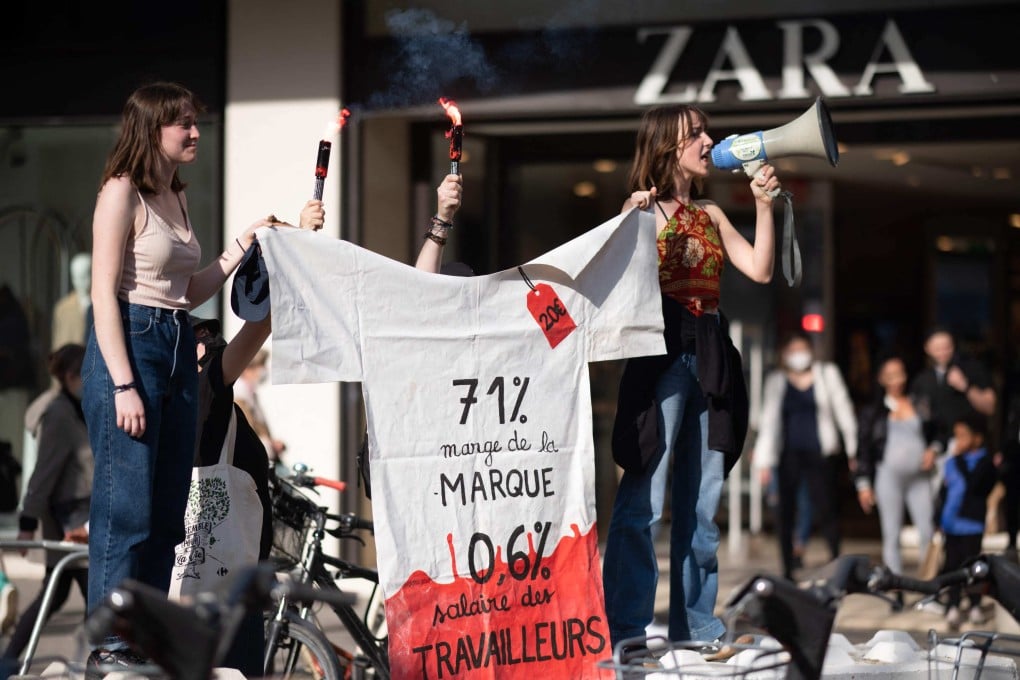Why does Gen Z buy so much fast fashion if they’re so stressed about climate change?
- Fast-fashion companies like China’s Shein are getting bigger and bigger, suggesting Gen Z shoppers don’t walk the sustainability talk when it comes to clothes
- Last week, Brussels announced a new initiative whereby any clothes made or sold in the EU will have to be repairable and recyclable

In the past two decades, many of us have gone from saving up to buy clothes that we kept and treasured to consuming pieces designed to be ordered via mobile, worn a couple of times, paraded on social media once and then discarded by the end of the month.
Studies show that young women are some of the biggest culprits of fast-fashion culture – buying 50 to 60 items a year and not even wearing one in seven of them.
Already the largest online-only fashion brand in the world, Shein raised another US$1 billion or so in a funding round last week, according to reports, valuing the company at US$100 billion. By comparison, Inditex, which owns Zara, has a market cap of roughly US$68 billion.

The EU has decided enough is enough. Last week, Brussels announced plans to crack down on throwaway fashion with a new initiative whereby any clothes made or sold in the EU will have to be repairable and recyclable.